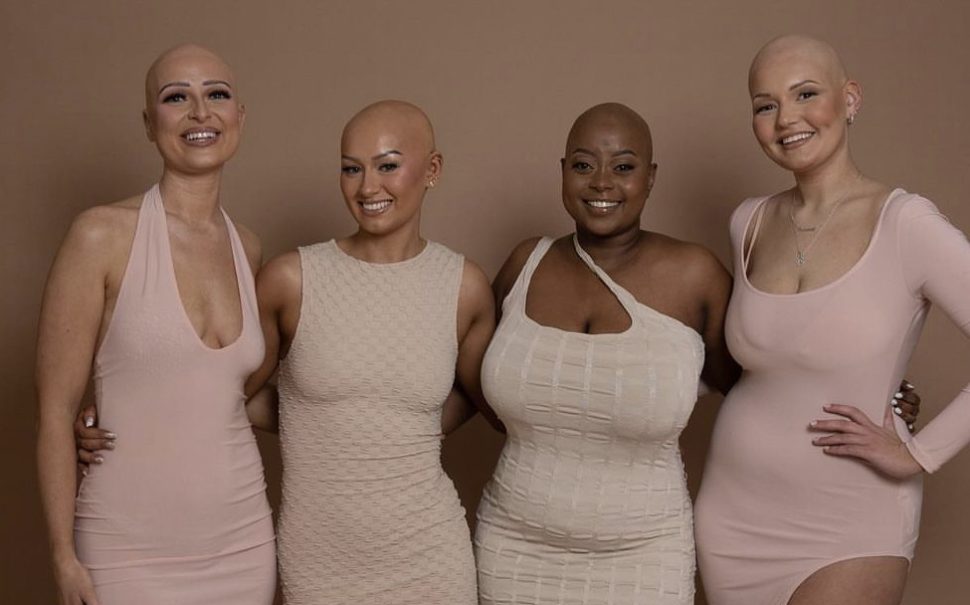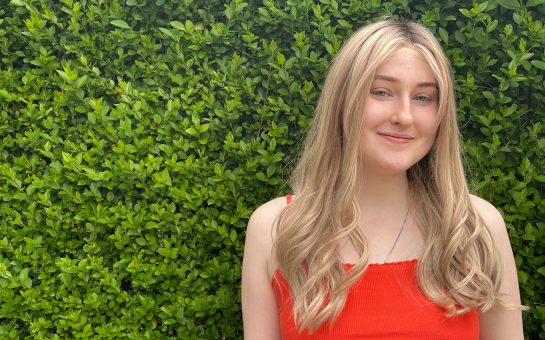A social media influencer who suffers from alopecia has launched a range of wigs after setting out on a mission to help empower those who suffer from the hair loss condition.
Alopecia is the most common cause of hair loss in the UK and across the globe and for the eight million female sufferers in the UK it can be an emotionally challenging battle.
Danielle Gilbert, a 24-year-old influencer from Newcastle, is challenging traditional beauty standards by advocating self-love and body positivity on social media and has now launched her own wig business to help other Alopecians find their confidence in the perfect wig.
She said: “It’s not very often you see a girl with no hair confidently exposing herself like that online, it was something that came naturally to me.
“It’s [alopecia] never let me stop me from doing anything, I was always into makeup so started up my TikTok and it just so happened that when I was posting makeup tutorials I would be posting without wigs and without makeup but that’s just because it’s who I am and that’s how I go about my daily life.”
Danielle hopes her new wig business can help empower other girls who struggle with the journey she has been on her whole life. She started losing her hair when she was just a baby so for Danielle this is something she has always had to deal with.
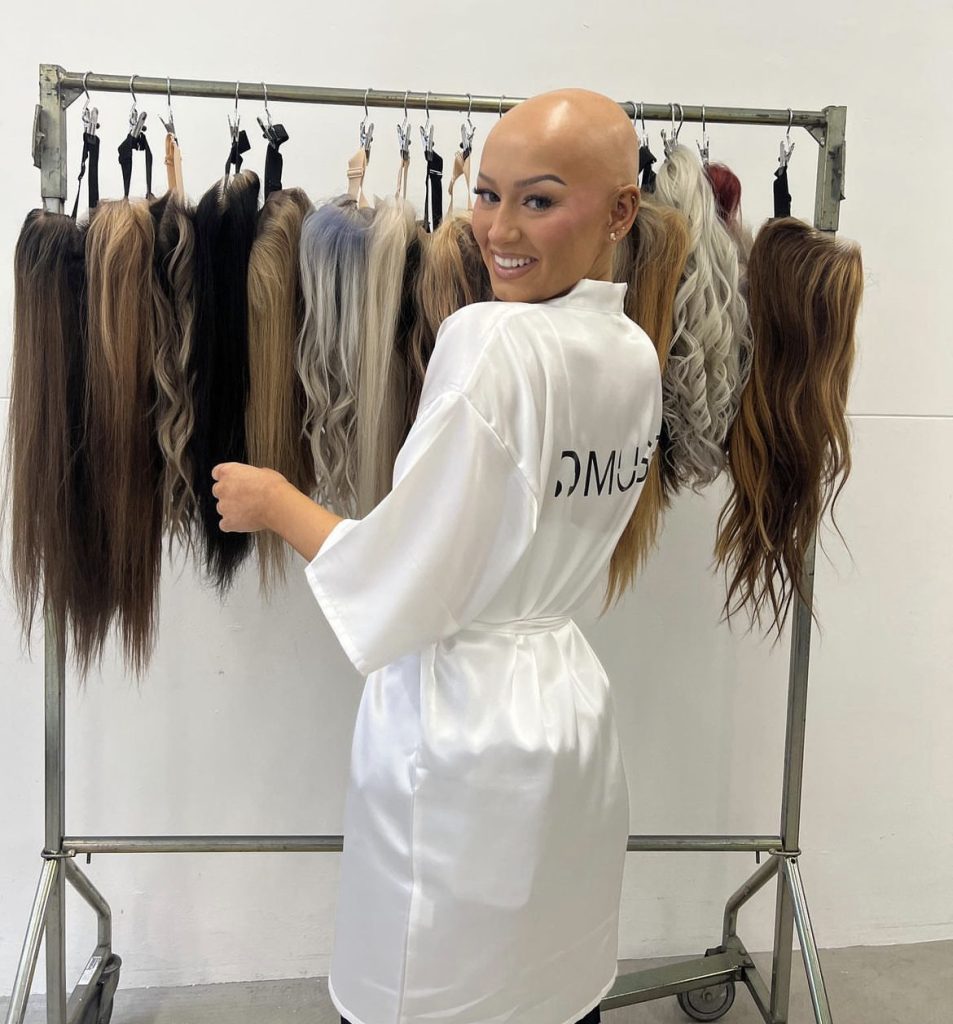
She said: “Obviously there was name calling at first, I was never to the point bullied but there was an obvious difference between me and others. I think because I’d been so open since the very start or never had to go through a transition where I’ve lost hair after having so much of it, it may have made it easier.
“I’ve tried so many wigs and there’s so many different things that I love about each wig but not all on one so I’d take the hairline from one the fit of the other and other things to put it all together into a wig that I love and I know other people in my position will too.
“I know what I love, and I know what works for people, and I want them to have that positive experience when getting into wigs, because I’ve worn them for that long and I know exactly how a wig can make you feel, I know it’s so important and I want to make a difference.”
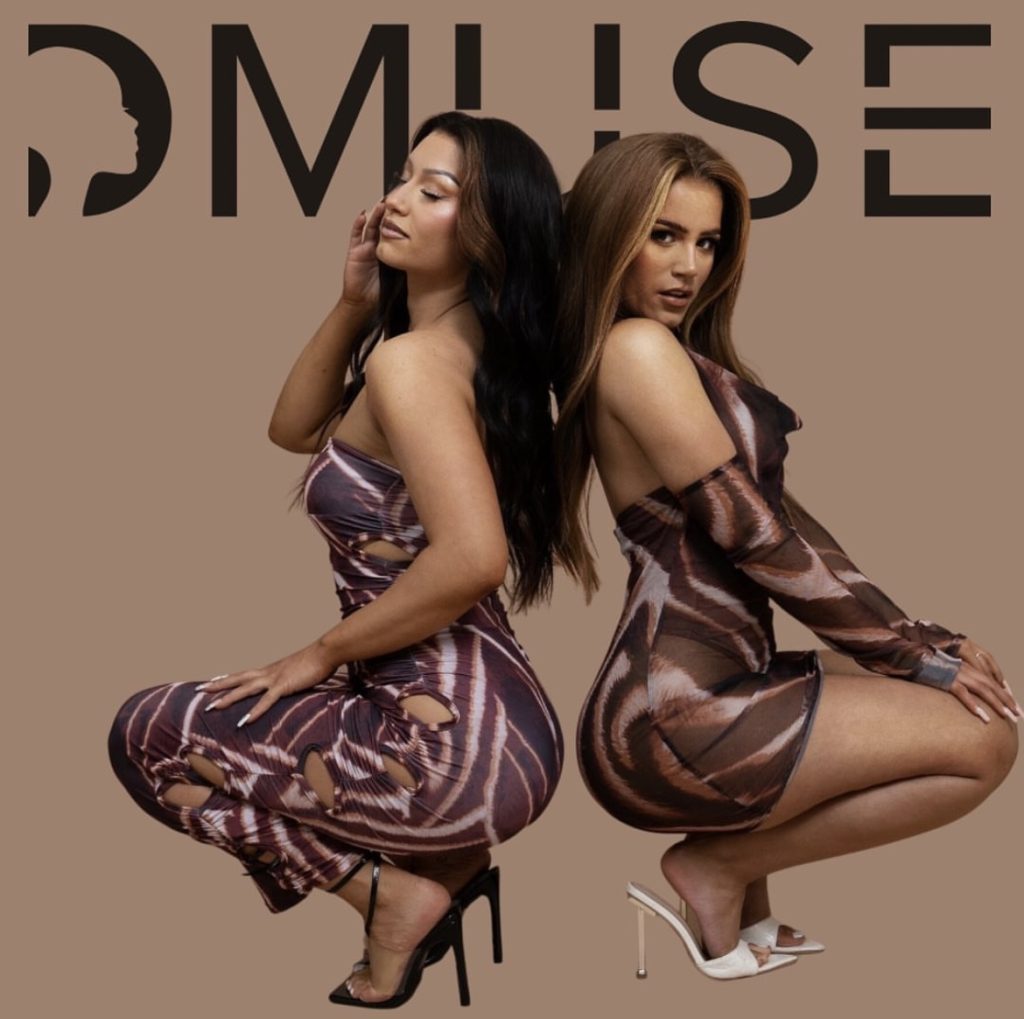
The 24-year-old’s confidence not only came from her presence on social media she explained but also from her 10 year competitive swimming career.
She said: “When I started swimming I used to wear swimming caps, I don’t know what god for, but I’d say that swimming helped me with my whole journey because going into any type of sport and group situation or University I really struggled because it was such a new environment.
“How do you tell people about it? Do you introduce yourself with a wig or without? It was such a massive thing and a lot of feeling and emotions but with swimming I had no choice and just had to be me.
“I couldn’t go into a pool with a wig on or makeup, you just can’t, so I just had to be fully myself. When I go into a new group or situation I just always feel like people won’t want to be my friend because I’m different and I know that’s such a silly idea and I know how silly it sounds and automatically I do sometimes distance myself and close in rather than get to know people, with swimming you make such close relationships with people and that really helped as I wasn’t treated any differently and had loads of friends so it’s silly of me to think like that. I had such an amazing time with swimming, I used to walk round poolside with no hair, and I just didn’t care. That really did help.”
Even with this support she still struggled to find a sense of belonging in new places, something that many girls with alopecia struggle with. Ellie, a student from Huddersfield in West Yorkshire, lost all her hair when she was 16 years old and often struggled with the emotional effects of hair loss.
She said: “Stress made all my hair fall out, that’s when I started wearing wigs. It was hard, my teachers thought I was a new student for the first couple of days. People give you funny looks and laugh, but I tried so hard to not let it affect me and I would just go home and cry about it instead.
“Young people with alopecia should all be told that no matter what you have on your head. everyone is still beautiful. Hair is just one part of our body, and it is such a materialistic thing, it doesn’t change the person we are inside, and it makes us stronger than anyone would realise. A little girl can always wear a tiara whether she has hair or not.”
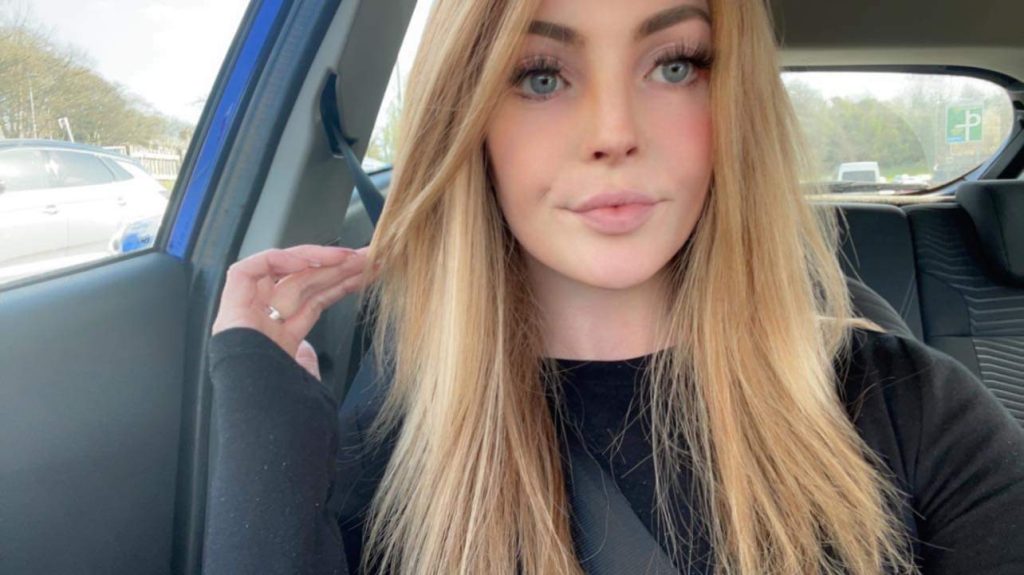
Ellie added: “Wigs are my saving grace; I wear one every day and have done for 5 years. They’re so expensive, but I can curl my hair and it stay curly for weeks so that’s great.”
For many girls like Ellie the price of human hair wigs can be daunting but Danielle is hoping her business can make a difference to girls like Ellie.
She said: “At the moment I’m offering 10% medical hair loss discount and the wigs start at £400 depending on how long you want it could stretch to £1,500 it just depends on what you want. I’m not oblivious to the fact that not everyone can afford to spend a grand on a wig and I absolutely know that I’m trying to make them as accessible as I can for people, I’m determined to do that.
“I offer payment plans; I’ll be doing sales and giveaways. I just want people to understand that I’ve been there, before all my social media stuff there’s been years I’ve been without a wig, I’ve had to go to charities to get a wig, so I fully understand what it’s like.”
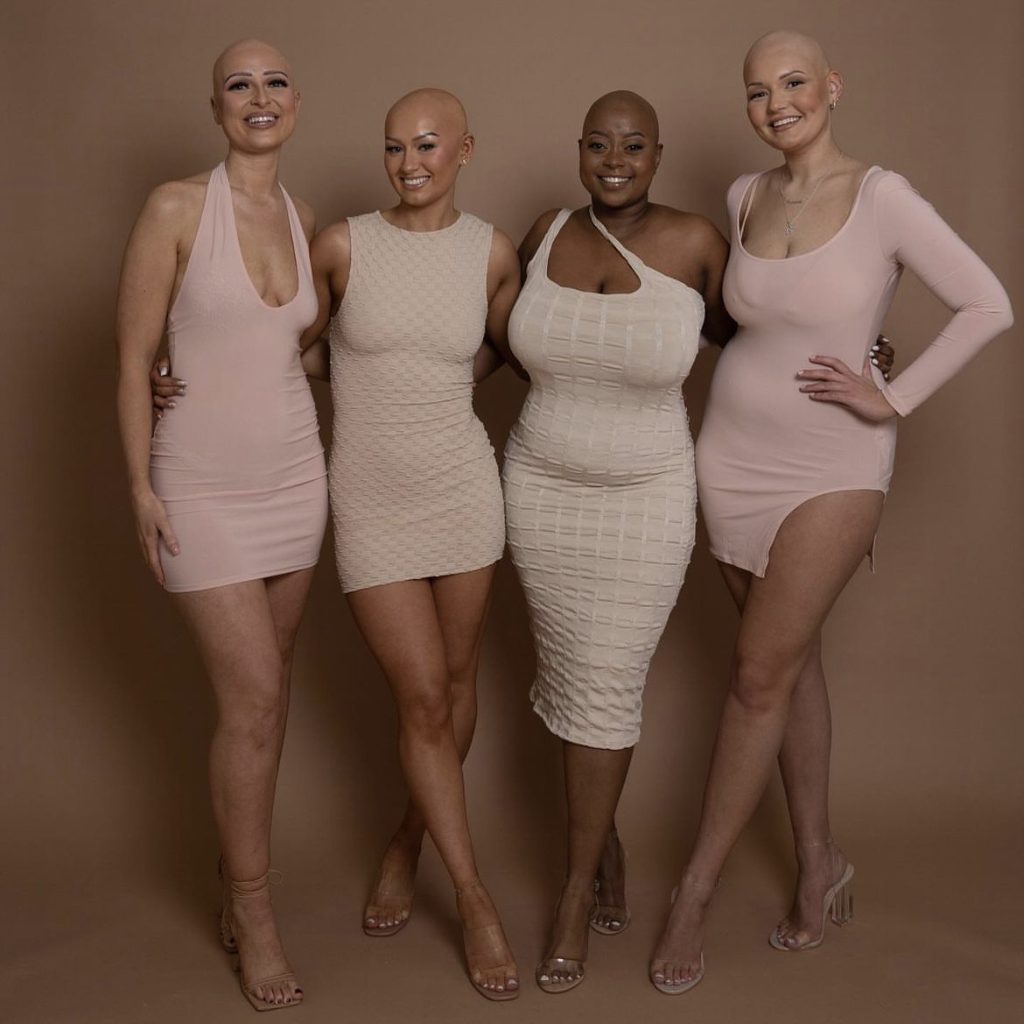
Danielle explained the mental affect alopecia also had on her describing it as mainly ‘environmental’. “It’s so strange I swam for ten years and even though I went through that period of having friends and having a really good time when I stopped and went to university I actually really struggled with going into new groups and I didn’t follow through with what I’d already learnt from swimming. I closed myself off completely and I couldn’t come out of it. I have different stages and different environments that impact me differently.” She added.
Shelby, a student from Halifax, explained that for her wigs were also a big part of her alopecia journey.
She said: “I love wigs, I have one in every other colour, I could wake up in the morning and pick any look I wanted.” Shelby lost her hair at the age of 16, with all her hair falling out withing nine days of finding her first patch.
A few years later and Shelby’s hair unexpectedly grew back but she recounted the emotions she felt during her time with hair loss. “It affected me greatly, I was suffering from other health conditions at the same time, but all my hair fell out in just 9 days of my first bald patch. Having to go to school in just a headscarf was a scary step for me and you felt like all eyes were on you.
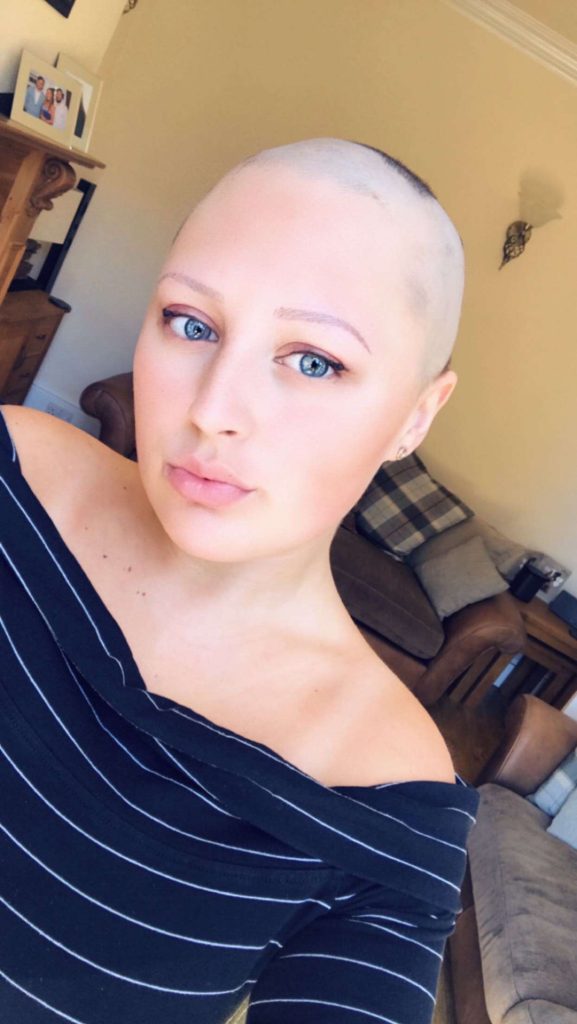
“I 100% believe it made me stronger, I was thrown into the deep end but I wouldn’t change it any other way, it made me more resilient and confident in my own skin.” She said.
Danielle said the most important thing about her new business is using models who suffer from alopecia as it ‘just makes sense’.
She said: “Something that was really important was having models who look like me and the client base, I want it to be about people and the brand, normal people feeling represented through my brand. I never want anyone to feel like they are different for not having hair and it’s so important I stress that through my brand.
“I want everyone to feel good and feel amazing. I know it means a lot to the models as well to be part of this community, I will always have Alopecia models because why wouldn’t I, they look like me.”
